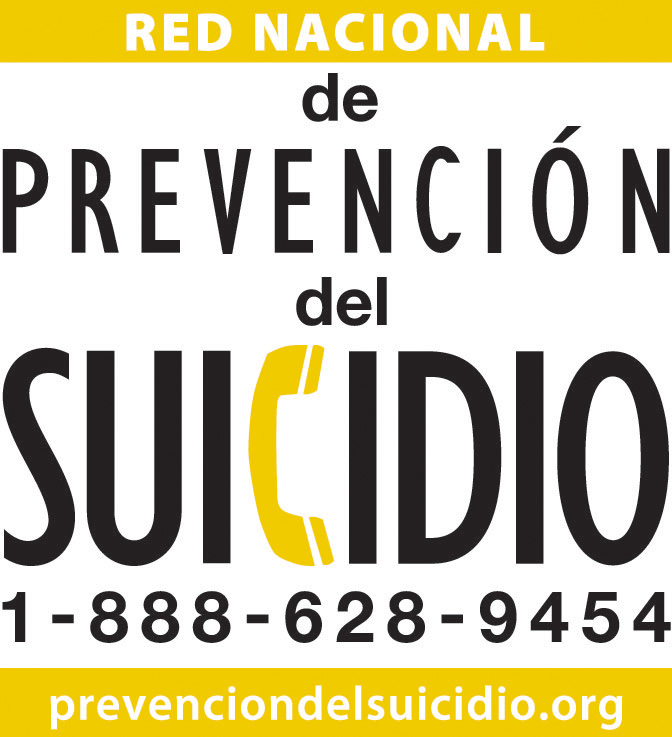Suicide Prevention
If you are considering suicide, please call below or visit https://www.speakingofsuicide.com/
![]() 24/7 Suicide Hotline: (800) 273-8255
24/7 Suicide Hotline: (800) 273-8255
 Hotline 24/7 Suicidio: (888) 628-9454.
Hotline 24/7 Suicidio: (888) 628-9454.
 WE’RE HERE FOR YOU. TEXT “START” TO 741-741 FREE, 24/7, CONFIDENTIAL.
WE’RE HERE FOR YOU. TEXT “START” TO 741-741 FREE, 24/7, CONFIDENTIAL.
WARNING SIGNS
-
Talking about suicide, directly or indirectly
-
Feelings of hopelessness, helplessness, loneliness and worthlessness
-
Major loss (death, divorce, and loss of job)
-
Preoccupation with death in the form of music, words, poetry or literature
-
Sudden happiness after a prolonged depression
-
Previous attempts
-
Saying goodbye and making final arrangements
-
Giving away possessions
-
Risk taking behavior
-
Anger and reckless behavior
-
Drug or alcohol abuse, promiscuity, self-cutting
-
Brushes with death (repeated accidents)
-
Obsession with guns or knives
-
History of depression or family depression or suicide
-
Stockpiling pills or purchasing a gun
-
Sadness
-
Irritability
-
Difficulty concentrating
-
Changes in behavior (withdrawing, eating and sleeping habits)
Risk increases with each of these warning signs. A person may exhibit one or more but does not mean that they have made up their mind to die.
Suicide can be prevented, however, the responsibility for this action does not mean that others take responsibility. There are usually a series of events in a person's life that leads to suicide.
They don't want to end their lives - just the pain. Pain can be the result of a chemical imbalance in the brain, which can occur when the neurotransmitters that regulate how we think, feel and act get out of balance.
Things You Can Do:
-
Listen
-
Ask about it if you recognize signs and let them know that you care and don't want them to die.
-
Find out if they have a plan for suicide (if they do, this makes it more lethal)
-
Help them search out alternatives
-
Stay with the person if they are at high risk
-
Get others involved who are potentially helpful
-
Let them know help is available 24/7
-
Offer to take them to counseling
-
Pray for them and let them know it.
-
Know that early intervention is the key to success!
Things You Can Say To Help:
See It-Say It (From Minnesota Institute of Public Health)
When a friend or family member engages in risky, unhealthy, or suicidal behaviors here is a simple caring, but assertive way to talk to them.-
I care....express your concern and care first
-
I see....describe what you see or noticed
-
I feel....use a feeling word - worried, concerned
-
I'm listening...what is going on with you?
-
Have you been thinking of suicide, hurting yourself?
-
I want....you to talk with someone else, involve your parents, talk to the school counselor, etc.
-
I will.....go with you, make an appointment, give you a ride, call you tonight.
Remember if someone is actively suicidal, get help immediately, do not leave them alone, and get medical or mental health assistance as a place to start the healing process. Seek spiritual guidance from your pastor.
(From Sources of Strength, Inc.) -
